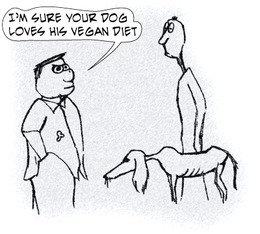|
Irony
|
to use words or expressions to imply the opposite meaning to the apparent one, often for derisive or humorous purposes; from the Greek eironeia, meaning 'dissimulation, assumed ignorance'
|
|
Sarcasm
|
to use bitter irony to mock; from the Greek sarkasmos, meaning 'a sneer, jest, taunt, mockery'
|
Examples
Purpose & Usage
|
Czesław Miłosz
Irony is the glory of slaves. Christopher Hitchens Irony is the consolation of the losers. |
Brenda Austin-Smith
Irony sits on the cutting edge of not caring. Mikhail Bakhtin Irony is the equivocal language of modern times. |
Multiple Types, Purposes & Effects
David Cameron
I won’t dwell on the irony that some people who want to vote to leave the E.U. apparently want to use a Leave vote to remain.
I won’t dwell on the irony that some people who want to vote to leave the E.U. apparently want to use a Leave vote to remain.
Verbal Irony
Irony takes several forms but verbal irony is common in everyday communication. It's a sophisticated figure of speech that attracts book-length examinations. This is because irony is often the engine driving other figures like parody, satire and rhetorical questions. Similarly, hyperbole and litotes are often engines of irony.
We use irony as subversive humour to momentarily bond with our audience as we collectively identify and enjoy a joke that derides its targets. Irony's important effects include the following.
We use irony as subversive humour to momentarily bond with our audience as we collectively identify and enjoy a joke that derides its targets. Irony's important effects include the following.
Irony and the Ironist
- Irony conveys the ironist's stance.
- Irony has greater sophistication when it states less and implies more.
Irony and Audiences
- Irony engages audience emotions and intellect.
- Irony helps audiences endure the absurdity of life.
- Irony highlights the contrast between social expectations and social reality.
- Irony creates perlocutionary effects like laughter, contempt and consolation.
- Irony is extremely communal. It works best when audiences detect the irony, identify its targets and transitorily bond in a shared joke.
Irony and its Targets
- Irony excludes and ridicules its targets and those who do not get the joke.
- Irony attacks the seriousness of public life that is manufactured in the media.
- Irony turns rational argumentation upside-down and seems to unwittingly reveal fundamental truths about society.
- Irony has always been disliked and distrusted by those in power because it appears ambivalent, subversive and disruptive.
Irony & Cultures
We must use irony carefully. Audiences may become confused, and the speaker feels foolish, if the audience does not realize the speaker is being ironic.
Some cultures tend to speak more or less literally or figuratively than others. Cross-cultural communication may therefore fail if one culture that uses much irony communicates with another that uses little irony. Hence the following commonplace:
Some cultures tend to speak more or less literally or figuratively than others. Cross-cultural communication may therefore fail if one culture that uses much irony communicates with another that uses little irony. Hence the following commonplace:
Folk Saying
The British are too polite to be honest, and the Germans are too honest to be polite.
The British are too polite to be honest, and the Germans are too honest to be polite.
Explanation: The British will often seem to agree with people and their ideas but are actually being ironic. Those who don't detect the irony miss the joke. Britons may say things like the following with or without an ironic or sarcastic tone.
|
That's really interesting.
|
That's a great idea.
|
The British speaker ironically says the opposite of these ideas because to directly say 'your idea is not interesting or good' seems impolite. Speakers from more direct or literal-speaking cultures - as the Germans supposedly are - may overlook the irony. Confusion then results.
Irony & Similes
as clear as mud
as lively as a funeral
as useful as a chocolate teapot
as welcome as a fox in a hen house
with all the tenderness of a prize fighter
Kurt Vonnegut
as pleasant and relaxed as a coiled rattlesnake
as lively as a funeral
as useful as a chocolate teapot
as welcome as a fox in a hen house
with all the tenderness of a prize fighter
Kurt Vonnegut
as pleasant and relaxed as a coiled rattlesnake
Sarcasm
|
Douglas Muecke
Sarcasm is the crudest form of irony. Oxford English Dictionary Sarcasm is a sharp, bitter, or cutting expression or remark; a bitter gibe or taunt |
Mark Twain
Get your facts first, then you can distort them as you please. I didn't attend the funeral, but I sent a nice letter saying I approved of it. |
Sarcasm is irony's sassy cousin. She says the opposite of what she means, but more directly: Sarcasm identifiably expresses a sharply negative stance. We might not see irony, but we can't miss sarcasm. Here is Steven Pinker sarcastically puncturing a common prejudice that people communicate less effectively today:
Steven Pinker
Surely the craft of written expression has declined since the days before smartphones and the Web. You remember those days, don't you? Back in the 1980s, when teenagers spoke in fluent paragraphs, bureaucrats wrote in plain English, and every academic paper was a masterpiece in the art of the essay? (Or was it the 1970s?)
Irony Laughs but Sarcasm Bites
Sarcasm's taunting character may evoke negative attitudes toward the taunt, the taunter and the taunted. But sarcasm is commonplace because it effectively and artistically derides things that invite derision. Watch these comedians mock targets using sarcasm and irony. See also ridicule.
|
Keith Alberstadt on Late Show with David Letterman, 2012
|
Jon Stewart on The Daily Show, 22 April, 2015
|
|
Alberstadt deals with absurdities in life through sarcasm.
|
Stewart uses Socratic irony to identify hypocrisy in public life.
|
The power and success of irony and sarcasm depend on theories and effects of laughter.

